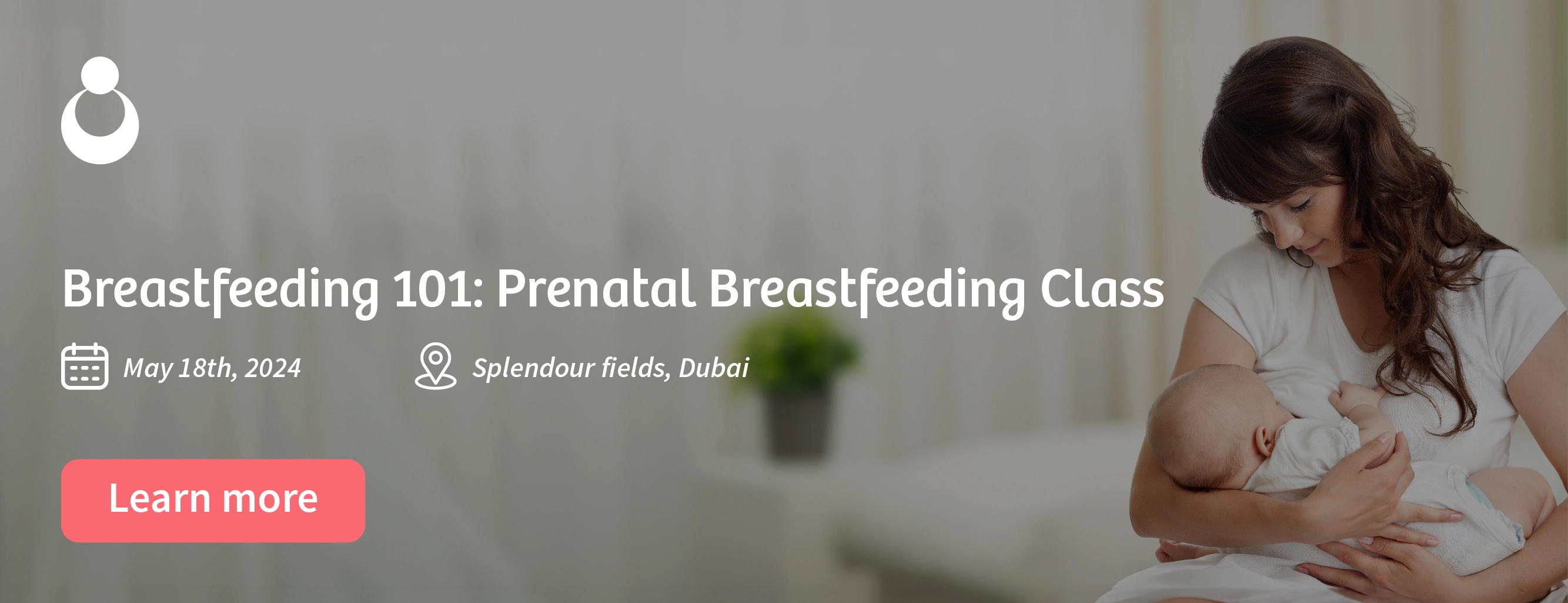Baby’s Growth Spurt: All you need to know
Your baby cries non-stop, even after he is breastfed to satisfaction. You become anxious and panicky and rush your baby to the doctor, thinking that something is wrong. But don't worry, mama, your little one grows every few weeks and months. He sends you messages telling you he needs more milk, care, and attention. Because he is going through a growth spurt, find out from this article what it is, when it occurs, how long it lasts, and when these spurts stop. I will also share some tips with new moms to make it easier for them to deal with infant growth spurts effortlessly.


What is a growth spurt?
It is a period that the baby experiences many times in the first year of life. The baby's need to breastfeed increases significantly, so they cry because of this intense need. The baby’s height and weight increase considerably at the end of this spurt. You may be surprised that the clothes your child wore two weeks ago no longer fit him and have become tight and small.
When does the growth spurt occur?
There is no specific date for infants' growth spurts, as each baby is different, but growth spurts usually occur at the age of two or three weeks, then at the age of six weeks, three months, and six months. They may also occur at other times.
When does an infant's growth spurt end?
New mothers wonder when the growth spurt will end Because it is very tiring for the mother Due to the child's frequent feedings, constant crying, and not being satisfied with breast milk, despite breastfeeding long enough to empty the breasts. The baby also wakes up from sleep frequently, which is very stressful for the mother. Fortunately, these spikes last for several days at a time. New moms must receive prenatal education about these spurts and prepare them so that they do not rush to give the infant formula or take the child to the emergency room. The baby is not sick; he is just starving and needs additional amounts of milk to suit the growth spurt he is going through.
Tips for dealing with growth spurts
- Prenatal education about breastfeeding and its challenges and child development in the first year of life.
- Remind the mother that this is a temporary period that will not last a few days.
- Continue skin-to-skin contact.
- Breastfeeding on demand will make the mother’s body produce more milk; even after the baby has emptied the breasts during feeding, sucking stimulates milk production.
- It is essential to express breast milk, even once a day. Keep some breastmilk in the freezer and use it during emergencies, such as growth spurts. This will reduce the possibility of using formula milk.
- During growth spurts, the mother needs a lot of support and assistance, as she will be exhausted by the infant’s decreased sleep and frequent feedings. Therefore, it is essential to encourage and support her and not say negative things, such as that her milk is insufficient and that her child needs formula.
- A breastfeeding mother needs to pay exceptional attention to her nutrition, consume food and drinks that increase breast milk, eat main meals rich in proteins and vitamins, and drink sufficient water. I encourage mothers to keep a water bottle close by while breastfeeding. Also, keep healthy snacks that help stimulate milk production, such as lactation biscuits, dates, dried fruits, and nuts.






